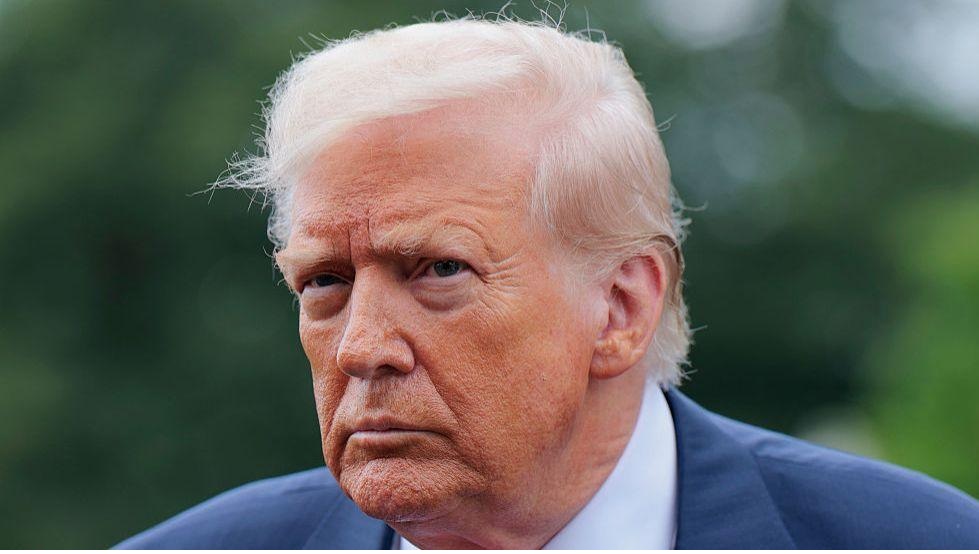In the midst of escalating violence between Thailand and Cambodia, former U.S. President Donald Trump announced that both nations had agreed to hold immediate talks aimed at establishing a ceasefire.
Trump’s statement came after separate phone conversations with the leaders of both countries, during which he emphasized that any future trade negotiations with either nation would be suspended until hostilities ceased.
The ongoing conflict has displaced over 150,000 people, marking the deadliest episode between the two Southeast Asian neighbors in more than ten years.
The fighting has already claimed at least 23 lives, 10 in Thailand and 13 in Cambodia, and continues to spark fears of broader regional instability.
Despite Trump’s assertion that both parties were seeking peace, developments on the ground painted a more complex picture.
On Sunday, the Thai military reported renewed Cambodian attacks, including artillery fire near a temple, a checkpoint, and residential areas.
In response, Thai forces retaliated using long-range weapons to target Cambodian artillery installations.
The Thai army insisted that military operations would continue until Cambodia initiated a formal request for peace talks.
Cambodia offered a different version of events, alleging that Thai forces launched the initial strike early Sunday morning.
The Cambodian defense ministry described Thailand’s actions as deliberate aggression, carried out despite what it claimed were sincere efforts by Trump to mediate a ceasefire.
Cambodia’s prime minister reportedly backed Trump’s peacemaking role.
The fighting, which had largely been concentrated in specific disputed border zones, spread over the weekend to new areas.
This includes Thailand’s coastal Trat province and Cambodia’s Pursat province, more than 100 kilometers from the original flashpoints.
Since intense fighting erupted on Thursday, the international community has grown increasingly vocal in its appeals for restraint.
The United Nations Secretary-General urged both nations to avoid further escalation, while Malaysia, chair of the regional bloc ASEAN, offered to mediate.
China also expressed concern, underscoring the potential for broader consequences.
On Friday, Cambodia’s UN envoy Chhea Keo called for an unconditional and immediate ceasefire during a closed-door emergency meeting in New York.
Meanwhile, Thailand’s representative at the UN urged Cambodia to halt hostilities and return to peaceful negotiations.
Saturday morning saw renewed accusations from both sides.
Cambodia’s Ministry of National Defense accused Thailand of shelling several areas in Pursat province, denouncing it as a premeditated act of aggression.
Conversely, Thai authorities claimed that Cambodian troops had breached the border in Trat province, prompting a swift response from Thai naval forces.
The current dispute is rooted in a long-standing disagreement over colonial-era maps, which has fueled periodic flare-ups along the 800-kilometer border.
Although tensions had already been mounting since May.
This followed a Cambodian soldier’s death during a brief skirmish.
The situation reportedly deteriorated rapidly after recent Thai casualties from landmines allegedly planted by Cambodian forces. Cambodia denies the claim.
Diplomatic ties have also frayed.
Thailand recalled its ambassador from Phnom Penh and announced plans to expel Cambodia’s envoy in Bangkok.
Full-scale fighting erupted Thursday, with both countries accusing each other of initiating the attacks and violating international law.
According to Thai health authorities, 20 Thai citizens – 13 civilians and 7 soldiers – have been killed, with dozens more injured.
Cambodia has reported 13 deaths, including five military personnel and eight civilians.
Thai officials say over 138,000 people have been evacuated from conflict areas, while Cambodia has displaced more than 23,000 residents near the border.
Acting Thai Prime Minister Phumtham Wechayachai warned that the conflict could spiral into full-scale war if not contained.
Although he stressed that current hostilities remain limited to military clashes.
He reaffirmed Thailand’s commitment to defending its sovereignty.
Blame continues to be exchanged, with Thailand accusing Cambodia of striking civilian infrastructure.
These include a hospital and a fuel station.
Cambodia on the other hand alleges the Thai military has used cluster bombs.
Adding another layer of complexity is a personal feud between the influential fathers of both countries’ current leaders.
Cambodia’s former Prime Minister Hun Sen, who handed power to his son Hun Manet in 2023, and Thailand’s ex-leader Thaksin Shinawatra, father of current PM Paetongtarn Shinawatra, have traded public insults and accusations.
Although Thaksin denied that their feud contributed to the violence, he harshly criticized Cambodia’s actions while asserting that Thailand’s military response had been proportionate and targeted.







